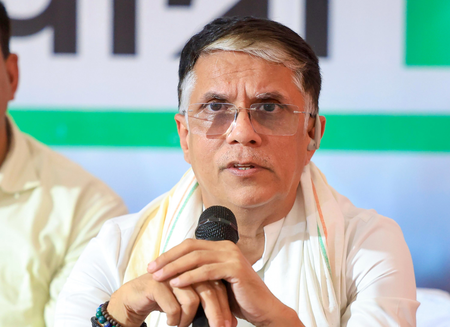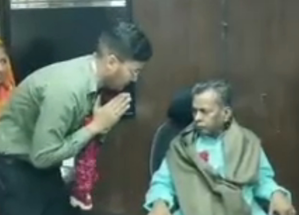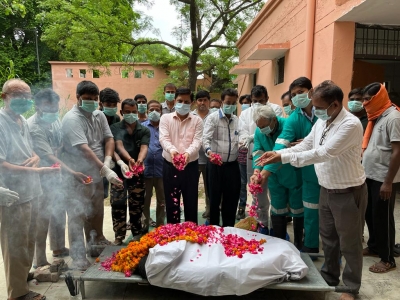
New Delhi, Sep 15 : Political reactions erupted across party lines on Monday after the Supreme Court stayed key provisions of the Waqf (Amendment) Act, 2025, with Congress leader Pawan Khera asserting that laws made without proper discussion inevitably force the court to intervene and deliver justice.
A Bench comprising Chief Justice of India B.R. Gavai and Justice A.G. Masih stayed the provision mandating five years of practising Islam for the creation of Waqf, until rules are framed.
The court also stayed the provision that empowered a designated officer to decide whether a Waqf property had encroached on government land, observing that allowing an executive officer to adjudicate on property rights would breach the principle of separation of powers.
Reacting sharply, Congress leader Pawan Khera said the ruling reflected the consequences of bypassing democratic legislative procedures.
“From what I see, such a situation should not have arisen on this point either. When you make laws without discussion, it eventually forces the Supreme Court to intervene and grant relief. This is not the first time. Over the last 10–11 years, there have been many such cases where SC had to intervene to give justice. Any government that makes laws without discussion will face this,” he said.
Congress MP Imran Pratapgarhi, one of the petitioners in the case, expressed satisfaction with the ruling, saying, “We are the petitioners and we are happy. But how can the government be happy? A large part of the government’s conspiracy has been stopped, and if despite that the government claims to be happy, then it is nothing but stubbornness on their part.”
On the other hand, BJP leader Mohsin Raza defended the government’s move and welcomed the Court’s decision.
“We welcome the decision taken by the Supreme Court, and the Waqf (Amendment) Act, 2025 brought by our Modi government is in public interest and in the interest of the country,” he stated.
UP Minister Om Prakash Rajbhar also endorsed the court’s reasoning.
“There are six religions within the minority community and they also have rights. Half of the population consists of women, and their participation should also be in the committee. What the Supreme Court has said is absolutely right,” Rajbhar said.
The Supreme Court further ruled that no third-party rights can be created over Waqf properties until the Waqf Tribunal makes a final adjudication.
(IANS)






